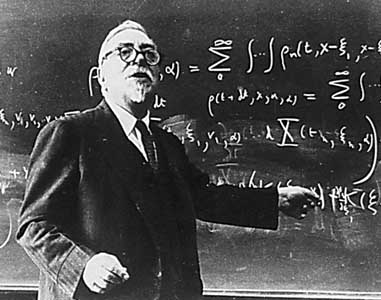Science and technology

Edgar me recomendó leer algunos trabajos de Wajcman (conocida por su postura tecnofeminista) y la verdad es que, como siempre, le estoy muy agradecido.
He encontrado un contundente análisis sobre la relación Science & technology. En su trabajo “New connections” se analiza la transformación desde una concepción determinista en relación al impacto de las TIC (mirada muy de los ’70) y el paso hacia una idea más compleja, real y contemporánea que concibe esta relación entre sujeto y objeto (en este caso, entre usuario y TIC) como un proceso relacional, heterogéneo, que se afecta a sí mismo y, por tanto, que habla de una construcción más social de las tecnologías. Aquí algunos extractos:
He encontrado un contundente análisis sobre la relación Science & technology. En su trabajo “New connections” se analiza la transformación desde una concepción determinista en relación al impacto de las TIC (mirada muy de los ’70) y el paso hacia una idea más compleja, real y contemporánea que concibe esta relación entre sujeto y objeto (en este caso, entre usuario y TIC) como un proceso relacional, heterogéneo, que se afecta a sí mismo y, por tanto, que habla de una construcción más social de las tecnologías. Aquí algunos extractos:
Tecnología y Trabajo
- Technologies not only change the nature and meaning of jobs and work activities, but they also reconfigure relationships between people and the spaces they occupy […] Treating technology as a culture helps to explain the gendered nature of jobs and the complex relationship between humans and machines. Indeed, there are signs that cyberculture may be modifying the character of labour in the digital economy.
- For machines to work, they have to be accepted by relevant social groups.
- Even the competent use of a supposedly simple machine such as a photocopier requires tacit knowledge and practical intelligence deployed in specific circumstances.
- There are myriad examples, such as that open-source software like Linux, where a constant feedback loop between producers and users results in more efficient technologies (von Hippel, 2005). Science and technology studies, then, provide a powerful argument for including ‘knowledgable’ users as participants in design and production processes in order to improve the real world functioning of ICTs.
- The unaccredited members of this net community are motivated by a desire for affective and pleasurable cultural production, their only reward being the social status that comes with being at the frontiers of innovation.
Tecnología, Apropiación y Sociedad:
- How technological objects shape the ways in which people relate to things and to one another does not imply a technological determinist view of designers as active and users as passive […] science and technology emphasizes the reciprocal relationship between objects and subjects, designers and users.
- Technological outcomes are the result of engineering social […] The more technologies are adopted and their problems resolved, the better their performance and the greater their adoption.
- An science and technology approach involves thinking about technologies not as singular objects but as heterogeneous assemblages of sociomaterial practices.
- So the mobile phone is not just one thing – it is what people make of it and how it connects to existing social dynamics.
- Technologies must be culturally appropriated to become functional: that material objects act as sources and markers of social relations and personal identities social and technical skills are inseparable in contemporary work organizations.
Network:
- Railroads, electricity, utilities, telephone networks, the internet, and surveillance technologies are just a few of the technologies that take the form of networks of components distributed across time and space.
- ‘Social factory’, Terranova (2000) argues that work processes have now shifted from the factory to society, setting in motion a continuous production of value that is completely immanent to the flows of the network society at large.
Linear model of innovation:
- Technology and society are no longer seen as separate spheres, influencing each otherheterogeneous network’ conveys the view that technology and society are mutually constitutive: both are made of the same stuff – networks linking human beings and non-human entities.(Akrich, 1992; Callon, 1998; Latour, 1996). Rather, the metaphor of a ‘Science and technology scholars have challenged the linear model of innovation that represents it as an activity restricted to engineers and computer scientists in research and development.
- The construction of technologies is therefore seen as a moving, relational process achieved in daily social interactions. The implication is that the designers and promoters of a technology cannot completely predict or control its final uses. Rather, technological change is a thoroughly contingent and heterogeneous process. There is nothing inevitable about the ways technologies evolve.
Fuente:
Wajcman, J. New connections: social studies of science and technology and studies of work. Work Employment Society 2006; 20; 773.
Wajcman, J. New connections: social studies of science and technology and studies of work. Work Employment Society 2006; 20; 773.
[Fisch & Scott ]
Etiquetas: conectividad, conocimiento, educación, innovación, inteligencia colectiva, open source












<< Home